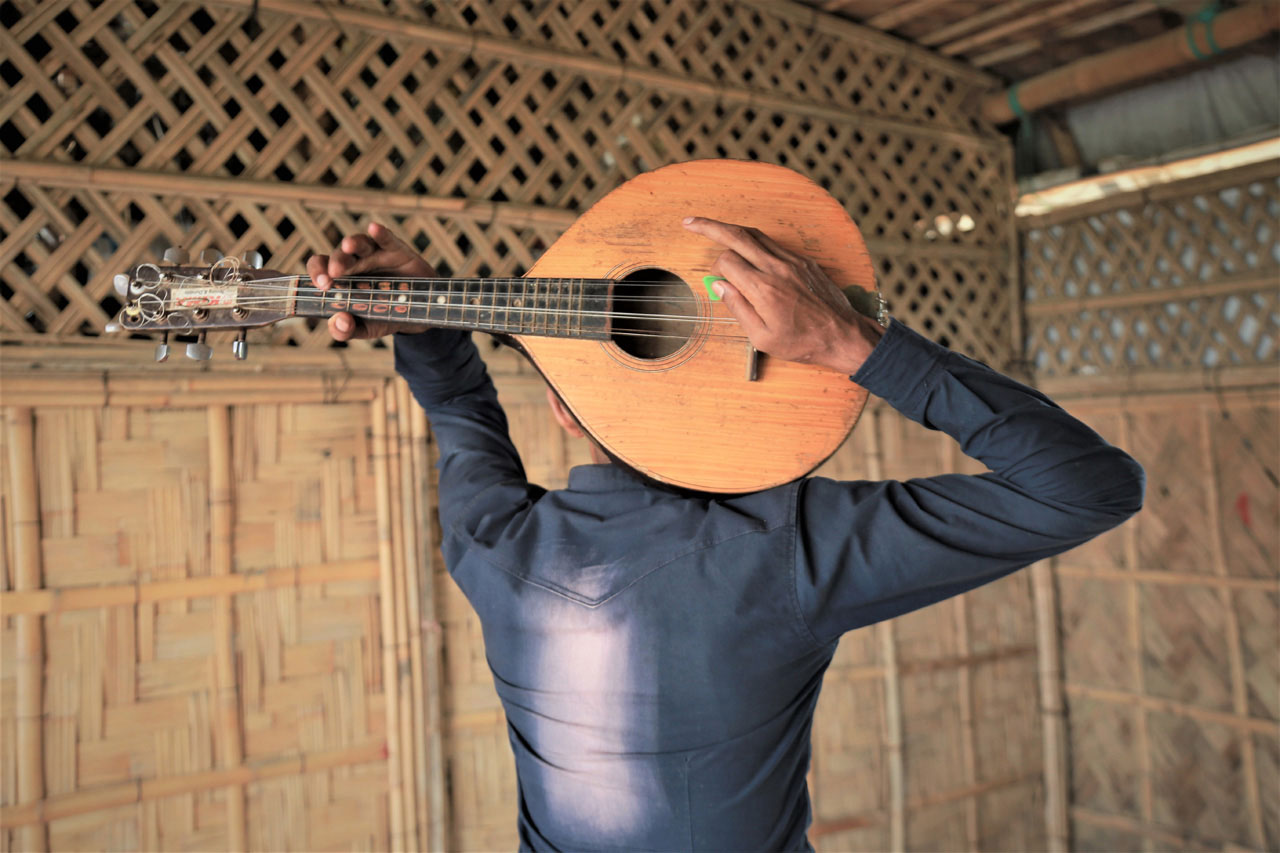
Love Songs of the Rohingya
In the camps and beyond, the displaced Rohingya community finds solace in their strong oral traditions. Within songs of love and love for songs, they create spaces of belonging for their bodies, minds, and souls, far removed from the present reality of the surveilled and congested camps. Consider these lines from "Naam thikana jana naai" (Name and address not known),
Neither do I know your name, nor your address,
My heart explodes every time I see you.
For this brave community, who have resisted generations of discimination and displacement, love is the architecture that holds them together, that strengthens their bonds, and creates windows and doors for greater connection and meaning. Better than most, the Rohingya know that love is what makes life livable. Rohingya music throbs with this sentiment, as in these lyrics from the song "Chokhor jorurat jendillah" (What I long to see),
The way eyes are important to see things at far
True love is similarly important to make a life better.
ROMANCE, PASSION, DESIRE
In Rohingya culture, conservative and anti-iconic Islamic beliefs limit the ways and means to express love between humans. Through music, however, they find numerous metaphoric ways to allude to love and passion while remaining within cultural parameters. Sentiments that would not be acceptable in any other space in Rohingya society, where expressions of love between unmarried men and women are restricted, find voice in song. For example, the body is an important medium to express love’s essence, and Rohingya songs celebrate this sensuality, sometimes in raw, unrestrained emotion. In particular, Hoñla songs, a popular genre of wedding song, have an erotic element and are meant to arouse. In singer, lyricist and dancer Rohim Ullah’s song "Shorbo shorir gorom hoibo" (You will feel the heat all over your body), the lyrics evoke physical passion.
You will feel heat all over your body,
once your hands are held by the one.
Rohingya wedding ceremonies are elaborate with preparations sometimes lasting for months. Love songs are central to the arrangements — to inspire love between the bride and groom, and to encourage feelings of romance or flirtation in the marriage-eligible guests. In the month prior to the wedding, Rohingya women also sing lusty songs alluding to otherwise private issues. In "Kasey aiaow dhakottun boiyo" (Come close, sit closer), the lover cajoles,
Come closer, sit closer,
Come, come, let’s love,
O beautiful girl!
I am upset with you, my friend,
I am disappointed with you,
All night I could not sleep for you!
Even the dust would not move without Allah’s command,
I prayed to get you
That's why I found
You, Lala Futu
LONGING FOR THE HOMELAND
Songs of patriotism are another distinctly Rohingya kind of love songs. Tarana music are about homeland, community, and the invisible bonds connecting birth, identity, and being. The lyrics of the Tarana "Otan cara koijje arare" (They have made us stateless) exemplify this emotion.
We are Rohingya people.
Never could we raise our voices.
They chased us back and forth and shot us.
They made us stateless, made us refugees. …
But even now we wish we had wings,
so we could fly to Arakan.
Rohingya music celebrates love in all its complexities and forms, from unappeasable, divine love to the playful theatre of worldly, human love to the intense longing for one’s homeland woven deep into the fabric of Rohingya being.
* * *
Written by Fouzia Reza, editor and copywriter of the Rohingya Cultural Memory Centre.
